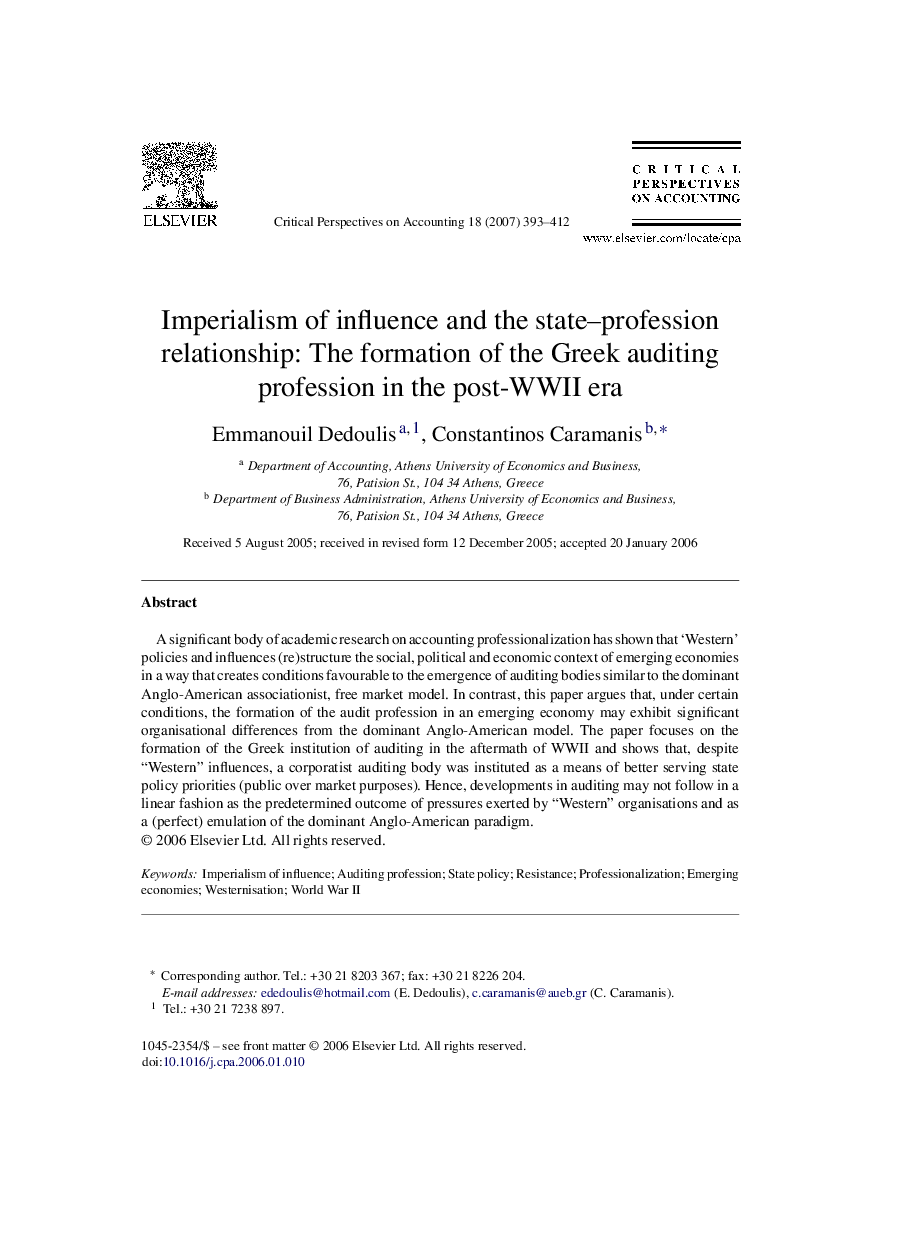| Article ID | Journal | Published Year | Pages | File Type |
|---|---|---|---|---|
| 1001114 | Critical Perspectives on Accounting | 2007 | 20 Pages |
A significant body of academic research on accounting professionalization has shown that ‘Western’ policies and influences (re)structure the social, political and economic context of emerging economies in a way that creates conditions favourable to the emergence of auditing bodies similar to the dominant Anglo-American associationist, free market model. In contrast, this paper argues that, under certain conditions, the formation of the audit profession in an emerging economy may exhibit significant organisational differences from the dominant Anglo-American model. The paper focuses on the formation of the Greek institution of auditing in the aftermath of WWII and shows that, despite “Western” influences, a corporatist auditing body was instituted as a means of better serving state policy priorities (public over market purposes). Hence, developments in auditing may not follow in a linear fashion as the predetermined outcome of pressures exerted by “Western” organisations and as a (perfect) emulation of the dominant Anglo-American paradigm.
